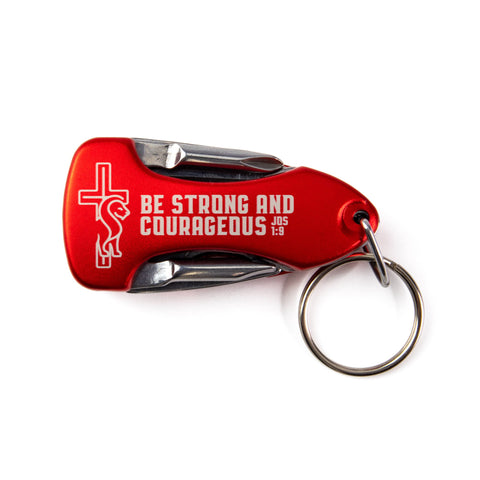- 3D Art Crystals (6)
- Acrylic Plaques (44)
- Air Fresheners- Christian and Catholic (4)
- All Christian Bookmarks (289)
- Armor of God Coin Collection (14)
- Auto Rosaries (30)
- Baptism Gifts Boys and Girls (69)
- Beauty Accessories (63)
- Birthstones (36)
- Boho Cross Bracelets (5)
- Bookmark Bible Cards (6)
- Bookmark Sets (28)
- Bookmarks (239)
- Bookmarks - Assurance (10)
- Bookmarks - Christian Life (15)
- Bookmarks - Confession (4)
- Bookmarks - God (3)
- Bookmarks - Mission (4)
- Bookmarks - Prayer (3)
- Bookmarks - Salvation (7)
- Bookmarks - Scripture (3)
- Bookmarks - Scripture Card (85)
- Bookmarks - Tasseled (71)
- Bookmarks - Tatted (7)
- Bulk - Wholesale - Olive Wood Ornaments and Nativities- Located in USA (103)
- Bulk Anointing Oils (19)
- Car Charms (12)
- Catholic - Icon Keyrings (12)
- Catholic Gifts (420)
- Catholic Jewelry (84)
- Catholic Medallions (2)
- Catholic Olive Wood Crosses (80)
- Catholic Olive Wood Stand Plaques (25)
- Catholic Pins (7)
- Catholic Tapestry Rosary Pouch (36)
- Children's Bookmark Assortments (6)
- Children's Christian Bookmarks (37)
- Children's Pass Along Card Assortments (6)
- Children's Pass Along Cards (47)
- Children's Poster Prints (14)
- Christian Bookmark Assortments (45)
- Christian Bookmark Bulk Packs (119)
- Christian Challenge Coins (148)
- Christian Rings for Men and Women (56)
- Christmas (207)
- Christmas Cards (8)
- Christmas Jewelry (0)
- Christmas Olive Wood (104)
- Christmas Ornaments (179)
- Coin Assortments (6)
- Comfort Crosses (50)
- Communion Cups (2)
- Confirmation & Christening Gifts (180)
- Cross Necklace Wood (40)
- Crosses - Olive Wood for Desk (10)
- Crosses - Olive Wood for Wall (23)
- Crucifixion Nail Replicas (2)
- Desk Accessories (3)
- Easter - Resurrection Products (21)
- Father's Day (37)
- Featured (161)
- First Communion Gifts (125)
- Flashlights (40)
- Floral Scripture Pens (12)
- Fridge Scripture Magnets (55)
- Gifts (12)
- Greeting Cards (20)
- Handyman Pens (20)
- Holiday Bookmarks (7)
- Holy Land Anointing Oil from Israel For Prayer (86)
- Holy Water Bottles (35)
- Hot Deals (15)
- Influencers Ministries Journey Products (6)
- Jerusalem Cross (23)
- John 3:16 Coins: God's Love Challenge Coin Collection (3)
- Keychains (27)
- Kitchen Accessories (2)
- Kitchen Conversion Chart (1)
- Lapel Pins (10)
- Leather (53)
- Leather Bookmarks (6)
- Leather Cuffs (7)
- Leather Keychains (26)
- Leather Wall Crosses (6)
- Leather Wallets (8)
- Light Up Pens (16)
- Logos Tap (38)
- Logos Tap Bible Charms (0)
- Logos Tap Car Charms (2)
- Logos Tap Elastic Stretch Bracelets (8)
- Logos Tap Keychains (2)
- Logos Tap Silicone Bracelets (2)
- Logos Tap Wallet Cards (24)
- Logos Woven Fabric, Mini Carpet, Christian, Bookmarks (80)
- Love Expression Coins (37)
- Lo•gos Jewelry (195)
- Magnetic Bookmarks (29)
- Medical Coins (2)
- Messianic Jewelry (13)
- Metallic Scripture Pens (6)
- Mother of Pearl Rosaries (30)
- Multi-Tools (61)
- Nail Clippers and Files (19)
- New Arrivals (59)
- Note Cards (2)
- Olive Wood - Comfort Angel (9)
- Olive Wood - Holy Land (540)
- Olive Wood Bracelets (26)
- Olive Wood Christmas Ornaments (86)
- Olive Wood Crosses (173)
- Olive Wood Finger Rosary (1)
- Olive Wood Icons (63)
- Olive Wood Keychains (44)
- Olive Wood Magnets (51)
- Olive Wood Memorial Crosses (4)
- Olive Wood Mezuzahs (8)
- Olive Wood Nativities (73)
- Olive Wood Nativity Sets (17)
- Olive Wood Necklaces (42)
- Olive Wood Pendant/Charm - Catholic (1)
- Olive Wood Plaques (21)
- Olive Wood Scripture Plaques (5)
- Paper Clips (6)
- Pass Along Cards - Joy (5)
- Pass Along Cards - Trust (5)
- Pass Along Cards - Don't Worry (5)
- Pass Along Cards - Faith (5)
- Pass Along Cards - Healing (5)
- Pass Along Cards - Hope (5)
- Pass Along Cards - Peace (5)
- Pass Along Cards - Praise (5)
- Pass Along Cards - Prayer (5)
- Pass Along Cards - Protection (5)
- Pass Along Cards - Purpose (6)
- Pass Along Cards - Stand Firm (5)
- Pass Along Scripture Card Assortments (20)
- Pass Along Scripture Cards (182)
- Patriotic (8)
- Pearl Scripture Pens (6)
- Pectoral Crosses (4)
- Pen and Pocket Sets (22)
- Pens (122)
- Pens - Deluxe Scripture Pens (15)
- Pens - Scripture Pen and Bookmark Sets (24)
- Pom Pom Pens (3)
- Poster Prints (27)
- Prayer Cards (1)
- Public Servant Christian Coins (13)
- Recipe Cards (6)
- Rosary, Olive Wood (42)
- Saint Benedict Crosses with Italian made Medal from the Holy Land (5)
- Salvation Cards (2)
- Sandalwood Beard Combs (12)
- School Coins (4)
- Scripture Art Prints (12)
- Scripture Bar Pendant (16)
- Scripture Cards to Pass them on (18)
- Scripture Magnets (50)
- Scripture Pen and Flashlight Sets (6)
- Seven Churches of Revelation (17)
- Soft Touch Pens (13)
- Spanish Bookmarks (3)
- Sports Coins (19)
- Stained Glass Bookmarks (4)
- Stainless Steel Jewelry (71)
- Stainless Steel Jewelry - Chains (7)
- Stainless Steel Jewelry - Leather Band Bracelets (15)
- Stainless Steel Jewelry - Men's Bracelets (9)
- Stainless Steel Jewelry - Necklaces (4)
- Stainless Steel Jewelry - Pendants (71)
- Stainless Steel Jewelry - Rings (2)
- Stainless Steel Jewelry - Women's Bracelets (17)
- Star of David (10)
- Statues (9)
- Sterling Silver Bracelets (4)
- Sterling Silver Chains (9)
- Sterling Silver Earrings (24)
- Sterling Silver for Him (9)
- Sterling Silver Gifts For Mom (8)
- Sterling Silver Necklaces (5)
- Sterling Silver Pendants - Christian Fine Jewelry (234)
- Sterling Silver Sets (10)
- Tape Measures (12)
- Thanksgiving - Products (5)
- Thin Scripture Pens (10)
- Tire Gauges (8)
- Trust in The Lord! (23)
- VerseMark Pens (4)
- Wall Crosses - Catholic (13)
- Wallet Scripture Cards (40)
- Wallets (16)
- Wooden Icons (11)
- Words of Life Cross Necklaces (36)
HOT ITEMS
We at Logos Trading Post have decided to have a collection of gifts that we think specifically suit the occasion of a first baptism. Whether you’re looking for catholic baptism gifts for boys or catholic baptism gifts for girls, we’ve got you covered with Bible bookmarks, Christian jewelry, or even religious challenge coins (which have come with a discount of up to 20% if you’re looking to purchase wholesale baptism gifts)! Especially worth mentioning are our holding crosses for boys and for girls made for the explicit purpose of celebrating the occasion of baptism. Also, if none of these seem like just the right gift for who you’re thinking of, feel free to consider anything else from our website as well. Thanks for your visit!
For wholesale and bulk discounts and to apply for an account please visit Logos Trading Post wholesale website. Click here to go to our wholesale website.
There are no products in this collection.
LOGOS TRADING POST - BAPTISM GIFTS
Baptism: The Father Blessing His Son
Baptism is no doubt a wonderful moment in the life of a young believer, and its significance can be felt all throughout the pages of the New Testament. Nowhere is this more evident than in the story of the baptism of Jesus. Luke 3:21-22 recounts the momentous story, claiming, “Now when all the people were baptized, and when Jesus also had been baptized and was praying, the heavens were opened, and the Holy Spirit descended on him in bodily form, like a dove; and a voice came from heaven, ‘You are my beloved Son; with you I am well pleased.’ The Father blessed Jesus, the Son, with the Holy Spirit at the moment of his baptism, which filled him with the power to do great miracles and ministry while on the Earth. Christ’s baptism was an occasion worthy of celebration and the giving of a gift, so why not honor the present-day baptism of a loved one in much the same way?
Baptism in Faith Traditions
Though there is divergence in what sacraments are and are not celebrated among different denominations and traditions of Christianity, baptism is universally accepted among all believers, albeit, with differing degrees of emphasis. This is especially true when comparing catholic and orthodox faith practices to protestant ones.
To begin with, across faith tradition lines, there are a few different methodologies that believers consider to be proper and legitimate. Most common is baptism by submersion, which considers a baptism complete when the one being baptized has submerged every part of his or her body in water and risen back out. However, there are others who would wager that baptism is achieved by submerging just the face in water - others still who would argue that baptism involves having water poured or sprinkled over the head of the baptized individual.
Whichever method you are most familiar with, it is important to acknowledge that each of these methodologies have their merits. For example, many have pointed out that submerged baptism resembles Christ falling into death, only to rise again in a more glorious state than before. Just as easily, however, poured over baptism resembles the anointing of oil that God used to declare His chosen prophets, priests, and kings in the Old Testament (if you’re interested to hear more about this subject, look at our article on the Holy Land Anointing Oil page). There is also, of course, a segment of believers who would suggest that perhaps all of the aforementioned methods are valid, so long as the baptism is an act of genuine faith - the faith, being what gives the activity its power.
Infant Baptism in the Catholic Church
Methodology is one thing, but there is still debate about one, sometimes controversial subject: infant baptism. Protestant traditions in general are fairly uncomfortable with the idea on account of emphasizing faith and belief as matters of free will, but it is common practice in Catholic tradition.
Though it isn’t unheard of to give a gift to an adult as a way to celebrate their baptism, catholic baptism gifts are typically designed with infants and/or their parents in mind. Logos Trading Post seeks to support all faith traditions throughout the world, but it is only fair to be open and honest that these wholesale baptism gifts are primarily designed as catholic baptism gifts. That being said, if any of these products appeal to you in a different situation, don’t worry; our products are fair game for any believer - no matter their background.
Here’s a bit more information about infant baptism if you aren’t already familiar. In the Catholic perspective, it is a beautiful and necessary part of a believing family’s faith journey together. Baptism is the first of seven holy sacraments, taking place in infancy as a cleansing process and allowing the child to grow up and participate in the other seven - Eucharist (Holy Communion, as it is recognized in other traditions), Confirmation, Reconciliation, Anointing of the Sick, Marriage, and Holy Order, to be specific. The sacrament of baptism is considered to be “cleansing” in the sense of “original sin,” or “Adam’s curse.” Original sin is the tendency toward sinfulness inherent in human nature due to the sin in Eden, spread to the human soul by the birth of one human from another. Romans 5:12 is often cited on the subject, saying, “Therefore, just as sin came into the world through one man, and death through sin, and so death spread to all men because all sinned.” Original sin is distinct from “personal sin,” the sin a willfully committed by a person through their actions on earth. By that definition, newborn infants obviously do not have personal sin to grapple with. Infant baptism is designed to cleanse them from original sin, but if the distinction of original and personal isn’t clear-cut in other faith traditions, it is easy to see why those traditions might have difficulty seeing the merit in infant baptism.
A Journey Toward Unity
Now, all of that said, what can we do with this information? After all, if you’ve read this far, chances are that you already have your own Christian tradition along with your own beliefs about baptism. Our goal is not to convert you from one way of thinking to another; we hope for Christ’s bride, the Church, to stand in unity as a beacon of hope for the world. Awareness and empathy for the beliefs of others is an important step toward unity. The important thing is that you recognize that people are different from you - even fellow brothers and sisters in Christ. John 13:35 says, “By this everyone will know that you are my disciples, if you love one another.” Love your neighbor; that’s what’s important. Whether you simply seek to better understand the beliefs of others, or you go as far as to buy one of our Catholic baptism gifts for a Catholic friend, every step forward is a good one!










